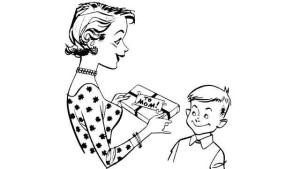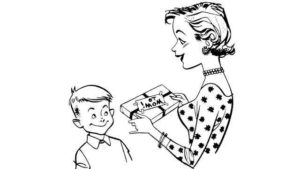How hard can it be to call a spade a spade? Very hard, it seems. Especially for Americans.
I am thinking of the word “adult” now. It is not used in an adult way. An adult, if he went to see what is popularly called an adult movie or bought an adult magazine would call it an erotic movie or pornographic magazine. Without shame. He might even use the word sexual in this context, a very spade-like word.
Shame, however, seems indispensable to some people. Pornography and erotic subjects must be dressed up, made respectable, called something else. I guess the Victorian era is still alive and well in the US of A.
The fact that “adult movies” and “adult magazines” are seen and read by young people who cannot be called adult don´t seem to matter.
Euphemisms matter.

Enough ranting. Now let´s get a bit more adult.
Adult is one position, or role, in the thinking of Eric Berne, whose “Games People Play” I just discovered, and much enjoy. Eric was American, and I have met wonderful adult people in America, as well as impressive Americans in Europe. So the general (?) rule sure has exceptions. (I sometimes even suspect that it is easier to find real adult people in the US than here. Maybe strong stupid general rules create exceptional exceptions.)
Anyway. Berne contrast the Adult with the Child and the Parent. (All these are inside us.) I think one could call it grown-up as well.
A grown-up is more and more separated from his parents. That happens automatically with time, but does not automatically mean that we become real grown-ups or adults. People about to die can still be very close to their parents, in that they still act out roles from their childhood.
This seems to happen in two ways, according to my current, very fresh and probably limited understanding at this time.
We either take the position as the Child, and act like a child.

Meaning that we affirm our helplessness, our need for outer help. But also that we indulge in defiance (not doing something only because someone wants us to do it), puerile protest, tantrums (screaming, crying, shouting — middle aged people can intensely enjoy being angry at each other), being easily hurt (“how COULD she say something like THAT to ME?!?”) throwing responsibility, restraint and common sense to the winds.
I think acting out our Child can feel like freedom. One kind of freedom. Maybe abandonment is a better word, being unrestricted, letting it all hang out.
This unrestriction seems double-edged. It can be free as the wind but can also be reactive (dependent on others). Our parents (parent figures) are often present in the picture. It is towards them that we act as a child. They may not be in the room, may even be dead, but they live on as a helping / saving-salvaging / admonishing / scolding / punishing force in the atmosphere of our psyche.
It is to them (present or not) that we turn for help, it is against them we react. In a way we do things because of them, not because of us. If they weren´t there, in some way or form, we would not act like children.

The other position we can take is the Parent. Now the picture is reversed, but possibly it is the same picture, you just move around in it.

Now we are not childish, help-seeking, mad, screaming or rebellious. On the contrary, we are very sober, mature and “adult”. (Note quotation mark.)
We help out, save the situation, give wise advice, are reliable, understanding and patient. Just as a good parent would be.

So what´s wrong with this? According to Berne, being in the Parent role means that you imitate your parents or do what you have learned is a “parent thing”. Handy if you have children and act like this towards them.
But real children are not necessary, since other people can be given the role of Child. Not even other people are needed, since all of this can be internal; your Parent advising, scolding your Child. (Or the other way around, your Child rebelling against your Parent.)
Whew, what a mess! But I suppose this is what things are like if viewed through a psychological microscope. We go in and out of roles, taking one position now, another the next minute, towards real parents, real children or surrogate children and parents, outer and inner.
Who said “It´s complicated”?
Well, we wouldn´t do it if we on some level didn´t enjoy complication. The whole of creation, I believe, goes from simplicity to complication and then back again. Some of us are moving towards more, some towards less complication.
Which brings us (finally!) to adults.

The Adult in Berne´s system, or let´s forget about dear Berne; I am just speaking of my understanding here. It is what it is, whether I understand Berne correctly or not.
So I would say that the real adult is very much separated from his parents, in the way that matters most. They may be alive, he might have a lot of contact with them, but he is free from imitating them and taking on the role as parent. He also does not feel like a child, has no need to rebel, protest and demonstrate how independent he is. He IS no longer a child, and also no longer feels any compulsion to act like a grown-up, to prove that he is mature.
He can truly say, with the Bible: “When I was a child, I spake as a child, I understood as a child, I thought as a child: but when I became a man, I put away childish things.”

I think this adult thing might hinge on responsibility. You are ready to carry it (the Child isn´t), but you feel no compulsion (a key word!) to carry it for others.
Why would I carry somebody else´s burden? Well, I could become a martyr, very altruistic, feel like a “good person”, get the advantage of later being able to say “remember what I did for you back then…?”. I can see a number of attractive, but sneaky, advantages to be gained. So the playing of Parent roles is perhaps nothing strange.
I have probably been too harsh here with the Child. Seem that many very positive impulses come from him. “In the Child reside intuition, creativity and spontaneous drive and enjoyment.” (G.P.P.) Those are very positive forces.
However, when we get stuck in a play not of our (aware) choosing the negative side of Child rears it´s obstinate, defiant head. The other side of the coin.
POSTSCRIPT: These ideas a new to me but already feel like old friends. Not just as a way of thinking but tools for breaking out of a play that I have been tired of a long time.
One confusion is between Adult and Parent. I think what is absent with the Adult is the need to make somebody a Child. How can I feel like a Parent when there are no Children around, just people?
I also note, when rereading this text, that the first part of it (about adult / erotic) was written a bit from a Parent role. Like talking to a Child (America) who is not really grown up.
Maybe I am just excusing me, or maybe this is how it actually is: Doing the Parent-Child dance on the level of social criticism is perhaps the best use you can put it to.
